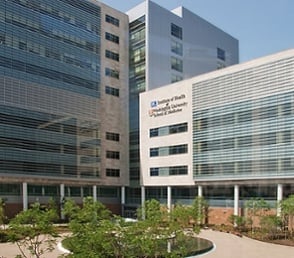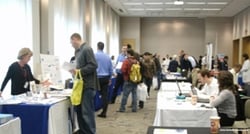The National Institute of Health (NIH) awarded Washington University in St. Louis over $1.4 million in grant funding to support their School of Medicine’s Diabetic Research Center. This award was administered through the National Institute of Diabetes and Digestive and Kidney Diseases (NIDDK) as it has been for the last 38 years. The funding will help support the Diabetic Research Center (DRC) and their life science labs. The DRC's mission is to “support and enhance research in diabetes and related metabolic diseases” through Biomedical Research Core services as well as the Pilot and Feasibility Program.

There are seven core services offered at the DRC. One of these is The Diabetes Models Phenotyping Core, which provides state-of-the-art services to multiple funded research projects in the area of diabetes and its complications. These services include:
• Glucose Tolerance and Insulin Tolerance Testing in Mice
• Determination of Body Composition
• Assaying Metabolic Parameters including Metabolic rate and Food intake
• Hyperinsulinemic/euglycemic Clamp Procedure
• Biochemical Analyses of Tissues
• Quantitative Atherosclerosis Analysis
Other highlights include The Immunoassay Core which provides laboratory testing support to clinical and translational diabetes investigators both inside and outside the university. It specializes in the analysis of human and rodent hormones, peptides, metabolites and other molecules involved in the pathogenesis of diabetes and related metabolic disorders. The Mass Spectrometry (MS) Core offers MS analyses to DRC investigators in order to quantify and determine structures of diabetes-related biomolecules.
In late 2017, a new core called the Cell and Tissue Imaging Core (WUCCI) will be established. This core will leverage the resources of Washington University’s Center for Cellular Imaging which provides state-of-the-art cellular imaging technologies. The Center offers a wide range of instruments and guidance in experimental design, sample preparation and data analysis. Expert staff will work with DRC investigators to develop and apply new imaging technologies to advance scientific understanding of diabetes and related metabolic disorders. Imagining technologies available at the WUCCI include:
Light Microscopy
Basic fluorescence microscopy / stereoscopy (widefield)
Confocal microscopy (both fixed and high-speed live cell on inverted and upright platforms)
TIRF microscopy (live cell)
Two-photon microscopy (both fixed tissue and in vivo intravital)
Super-resolution microscopy (both localization and structured illumination)
Electron & Ion Microscopy
Transmission Electron Microscopy (TEM)
Scanning Electron Microscopy (SEM)
3D EM using Focused Ion Beam (FIB-SEM)
TEM sample prep including embedding, thin section and deep etch EM
SEM sample prep including sputter coating and block finishing for 3DEM
The funding from the NIDDK and other NIH grants also makes the Pilot and Feasibility Program at WUST’s DRC possible. This program supports the generation of preliminary data so that faculty can then submit new applications for independent (NIH, JDRF, or ADA) research grants. These grants award researchers up to $50,000 for the year with a second year of funding possible based on research progress. In 2016 there were six projects funded through this program.
WUSM’s DRC is only one of many departments within Washington University to receive substantial funding from the NIH. In fact, as of the writing of this article, 2017 grants awarded by the NIH to Washington University in St. Louis already totaled close to $60 million. During the 2015 fiscal year, grants and contracts supporting research at their School of Medicine alone totaled more than $531 million.
Laboratory Equipement Suppliers Meet Face to Face with WUSTL Researchers at Upcoming Event:
The 18th annual BioResearch Product Faire™ at Washington University in St. Louis is coming up on Tuesday, March 28th, 2017. This biotechnology trade show is an excellent opportunity for life science researchers and laboratory equipment suppliers to network and discuss their research needs and solutions. Researchers are invited to attend the on-campus trade fair for free. For more information or to pre-register, click the link below.
There are over 2,000 faculty physicians at WU's School of Medicine. It is one of the leading research, teaching, patient care institutions in the country. Laboratory equipment suppliers interested in marketing their products at this prestigious university can visit the link below or call (530) 272-6675 for more information about exhibiting.




